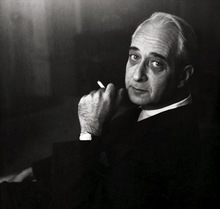 Samuel Moyn in Boston Review:
Samuel Moyn in Boston Review:
Cold War liberalism was a catastrophe—for liberalism. This distinct body of liberal thought says that freedom comes first, that the enemies of liberty are the first priority to confront and contain in a dangerous world, and that demanding anything more from liberalism is likely to lead to tyranny.
This set of ideas became intellectually trendsetting in the 1940s and 1950s at the outset of the Cold War, when liberals conceived of them as essential truths the free world had to preserve in a struggle against totalitarian empire. By the 1960s it had its enemies, who invented the phrase “Cold War liberalism” itself to indict its domestic compromises and foreign policy mistakes. That did not stop it from being rehabilitated in the 1990s, when it was repurposed for a post-political age. A generation of public intellectuals—among them Anne Applebaum, Timothy Garton Ash, Michael Ignatieff, Leon Wieseltier, and many others—styled themselves as successors to Cold War liberals, trumpeting the superiority of Cold War liberalism over illiberal right and left while obscuring just how distinctive it was within the broader liberal tradition. 1989 ushered in the global triumph of freedom, but on Cold War liberalism’s distorted terms.
Then came the election of Donald Trump in 2016, which unleashed a great war over liberalism—a polemical one, at least—and prompted yet another resurgence of Cold War liberalism’s core ideas. Patrick Deneen’s much-discussed assault, Why Liberalism Failed (2018), was met by a crop of liberal self-defenses, almost all of them explicitly or implicitly attempted in Cold War terms. Francis Fukuyama, Adam Gopnik, and Mark Lilla all wrote book-length versions of why Cold War liberalism still had legs, but literally thousands of essays and websites, and even whole magazines such as The Atlantic, offered the same message in frantic response to Trump’s breakthrough. Organized as much against the left as the right, these defenses not only rang hollow; they have failed to forestall the political crisis they promised to transcend.
More here.
